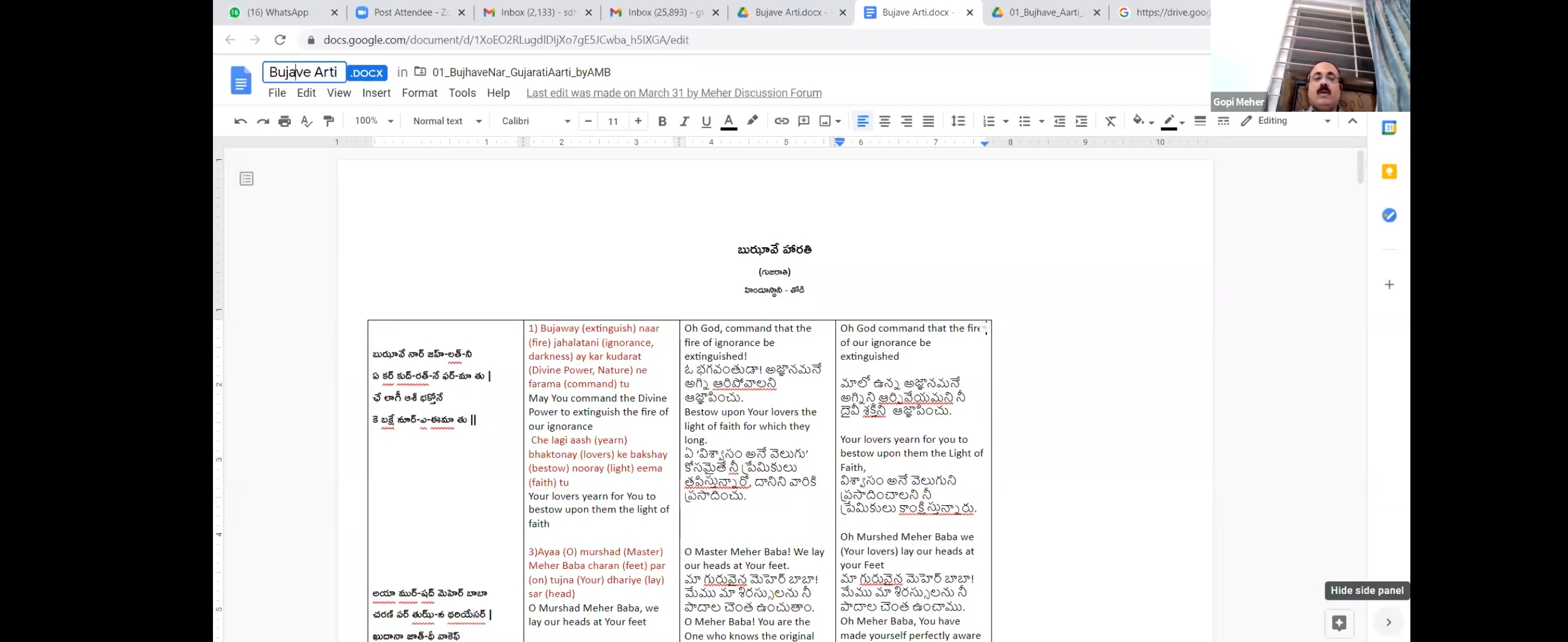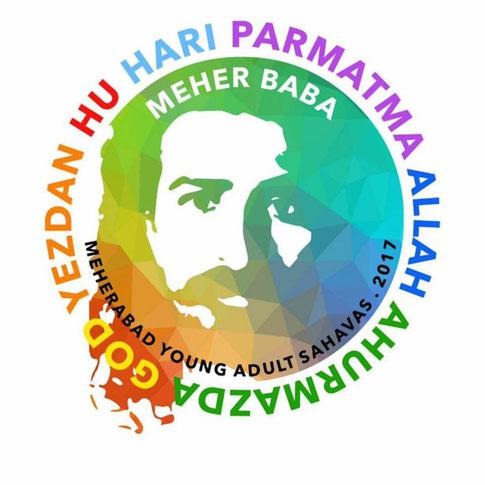
Arti, (힌디어: "빛의 의식") 산스크리트어 aratrika, 힌두교와 자이나교 의식에서 신이나 존경받을 사람의 형상 앞에 불 켜진 등불을 흔드는 것. 의식을 거행할 때 참배자는 등불을 시계 방향으로 세 번 돌면서 기도를 하거나 찬송을 부릅니다. Arti는 사원과 개인 예배에서 가장 자주 관찰되는 부분 중 하나입니다(puja 참조). 신은 불을 붙인 버터 기름이나 녹나무에 의해 존경을 받고 나침반의 방향에 대한 신의 기원에 의해 보호됩니다. 인도 가정에서 아르티는 특별히 영예로운 손님에게 주어지는 일반적으로 관찰되는 의식 치료입니다. 그것은 또한 많은 국내 행사의 일부입니다.
Arti, (Hindi: “the ceremony of lights”) Sanskrit aratrika, in Hindu and Jain rites, the waving of lighted lamps before an image of a god or a person to be honoured. In performing the rite, the worshiper circles the lamp three times in a clockwise direction while chanting a prayer or singing a hymn. Arti is one of the most frequently observed parts of both temple and private worship(see puja). The god is honoured by the lighted ghee (clarified butter) or camphor and is protected by the invocation of the deities of the directions of the compass. In Indian households, arti is a commonly observed ritual treatment accorded specially honoured guests. It is also a part of many domestic ceremonies.

An "Arti" is a song of praise for the Beloved from his lover / devotee.
https://trustmeher.org/meher-baba-places/meherabad/prayers-and-arti
GUJERATI ARTI
Baba wrote this arti "Bujawe Naar Jallatani" otherwise known as "Gujerati Arti" on the 11th January 1926.
종종 Gujarati Arti라고 불리는 Bujaawe Naar Arti 는 Meherabad와 Meherazad에서 매일 불립니다. 우리는 이 가장 아름다운 Arti의 중요성을 알기 시작할 수 없지만 이것이 Beloved Meher Baba 자신에 의해 쓰여졌다는 것을 압니다.
1924년 말이나 1925년 초, 그의 침묵이 시작되기 직전 그리고 봄베이에 머무르는 동안 메헤라는 Baba가 어느 날 밤 그의 창 밖 거리에서 노래를 들으며 깨어 있었다고 회상했습니다. 그녀는 같은 날 밤에 그가 Bujaawe Naar를 작곡했다고 더 회상했습니다. 아침에 그분은 여자들을 위해 노래를 부르셨고 또한 종이에 가사를 적으셨습니다. 불행히도 그 종이의 운명은 오늘날 알려지지 않았습니다.
Baba는 새벽과 관련된 매우 오래되고 고전적인 형식인 인도의 전통적인 Bhairavi raga를 기반으로 Arti를 위한 멜로디를 작곡했습니다. Bhairaviis는 경건한 "아침 라가"이기 때문에 Baba의 Samadhi에서 매일 아침 Bujaawe Arti를 부르는 것이 적절합니다.
Meher Baba 자신이 작곡한 Bujaawe Naar Arti는 절묘한 음악입니다. 그래서 그가 매일 메헤라바드와 메헤라자드에서 노래를 들을 때 그것이 그에게 기쁨을 줄 것이라고 생각하는 것은 훌륭합니다…
Baba는 Roshan Kerawala에게 Bujaawe Arti가 이번 대림절의 모든 기도* 중 가장 유력하다고 말했고 그는 이 기도가 불려지는 곳이면 언제 어디서나 그가 함께할 것이라고 말했습니다. 오늘날 Bujaawe Naar는 동서양의 바바 센터, 회의 및 모임에서 불립니다. 의심할 여지 없이 그것은 그분이 다시 오실 때까지 앞으로 몇 년 동안 전 세계에서 부를 것입니다.

Oh God command that the fire of our ignorance be extinguished
Your lovers yearn for You to bestow upon them the Light of Faith
Oh Murshed Meher Baba we (your lovers) lay our heads at your Feet
Oh Meher Baba, You have made yourself perfectly aware of your Godhood.
You are the Lord of Truth, You are the Lover and the Beloved in One.
Being the torrent of infinite Knowledge, You are the Ocean of Oneness,
Oh Master, bestow upon us, the wayfarers, the Knowledge of Ezad (the only One worthy of worhsip)
For You, Oh Paramatma are Omniscient and are Divine Knowledge Itself.
Give us to drink of the cup of God's Love that we become intoxicated.
Oh Saki, we offer our lives in sacrifice to You, give us this draught.
Only is You steer our ship while in mid ocean can we remain afloat
Oh Meher Baba, the Captain of our ship, You are our Protector.
Oh Meher Baba, the Captain of our ship, You are our Protector.
Meher Baba의 구자라트어 Arti
Boojaaway nar jallatni ay kar
koodratnay farmaa too,
Chhay laggi aash bhaktonay kay
bakshay nooray eema too.
Ayaa Moorshad Meher Baba charanpar
toojna dhariay sar,
Khoodaanaa zaatathi waakef
thaee meherbaa too.
Too chhay maalik hakikatno too
aashek bhi ney aaref bhi,
Too chhay dariyaa-ay wahedat
maaray fatno, ho-ee toofaa too.
Hamo raharav nay aiy saalek bakhash
jay gnyaan Ezadnoo,
Kay too Parmaatmaa, gnyaani chhay
nay mookhtaaray irfaa too
Khoodaanaa Premno piaalo pilaavi mast
hamnay kar,
Chhay toojpar jaan Sadkay saakiyaa
aapi day payamaa too.
Hamaari naav bhar dariay taraaway
견인, hamay tariay —
Hamaaraa naakhoodaa aiy Meher Baba
chhay neegabhaa too.
Hamaaraa naakhoodaa aiy Meher Baba
chhay neegabhaa도.
The Bujaawe Naar Arti, often referred to as the Gujarati Arti, is sung every day at both Meherabad and Meherazad. We cannot begin to know the importance of this most beautiful Arti, but we do know that it was written by Beloved Meher Baba Himself.
In late 1924 or early 1925, shortly before beginning His silence and while staying in Bombay, Mehera recalled that Baba had stayed awake one night listening to singing in the street outside His window. She further recalled that during that same night He composed the Bujaawe Naar. In the morning He sang it for the women and also wrote the words on a piece of paper. Unfortunately, the fate of that paper is unknown today.
Baba composed the melody for the Arti based on a traditional Indian Bhairavi raga,a very old and classical form associated with the dawn. Since the Bhairaviis a devotional “morning raga,” it is fitting that the Bujaawe Arti is now sung every morning at Baba’s Samadhi.
The Bujaawe Naar Arti, composed by Meher Baba Himself, is an exquisite piece of music, so it’s wonderful to think that it gives Him pleasure when He hears it sung daily at both Meherabad and Meherazad…
Baba told Roshan Kerawala that the Bujaawe Arti was the most potent of all the prayers* in this Advent and He said He would be present wherever and whenever this prayer is sung. Today, the Bujaawe Naar is sung at Baba centers, meetings and gatherings in both the East and West. No doubt it will be sung around the world in the years to come—until He returns again to sing it with us.
[Source:AMBPPCT]
'아바타 메허 바바 > 메허 바바 영상' 카테고리의 다른 글
| 메허 바바 - 고요한 아르티 버전 감상 (0) | 2021.12.05 |
|---|---|
| 메허 바바(메헤르 바바) 나는 누구인가 - 마이트레야 붓다, 칼키 아바타, 예수 그리스도 재림 (1) | 2021.11.23 |
| 메허 바바 신의 이름 아바타 7가지 자파(염송, 만트라) (0) | 2021.11.21 |
